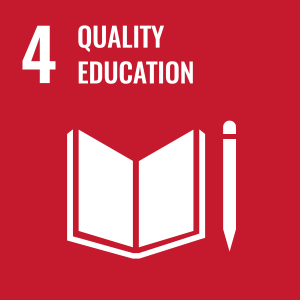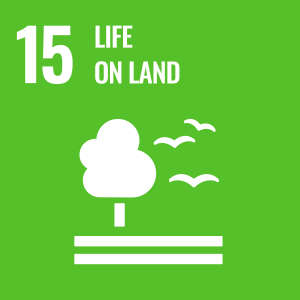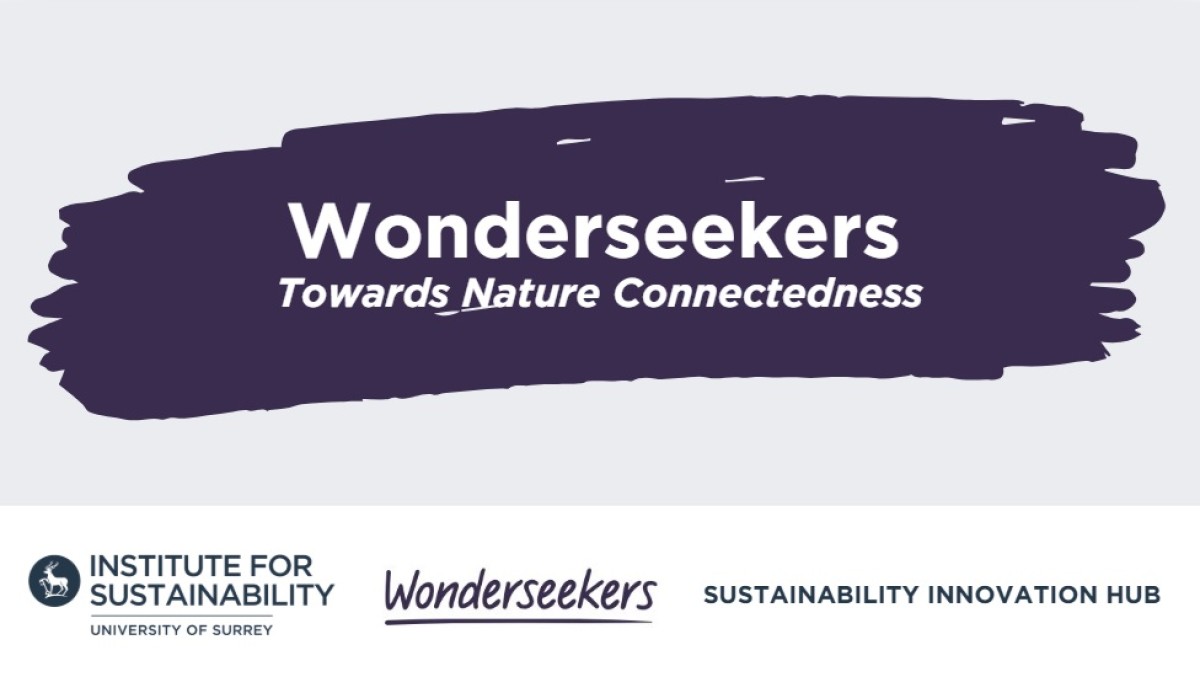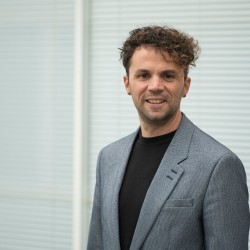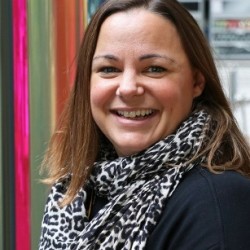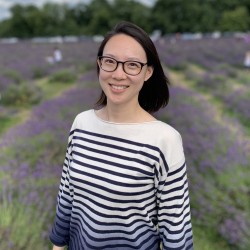Wonderseekers: Promoting children's connection with nature
Led by Matteo Giusti, this collaboration with Wonderseekers involved the co-development and delivery of both on-site and off-site activities aimed at fostering children’s connection with nature, particularly in nature-deprived settings. The project addresses the United Nations Sustainable Development Goals (UN SDGs) SDG3, SDG4, SDG10, SDG11, and SDG15.
The challenge
In 2024, the Institute for Sustainability launched its first-ever Innovation Contest to strengthen collaboration between external organisations and Institute Fellows, and to create opportunities for co-developing innovative and sustainable solutions. As one of the participating organisations, Wonderseekers proposed a challenge focused on creating a participatory exhibition at Winchester Science Centre, alongside a community activity programme. Dr Matteo Giusti was selected to lead the collaboration with Wonderseekers, with a project designed to enhance children's connection to nature through a series of engaging on-site and off-site activities.
Wonderseekers is a charitable organisation dedicated to inspiring children to engage with science, empowering them to lead healthier, more sustainable lives and contribute to a better world for all. Winchester Science Centre is a part of Wonderseekers charity and serves as a hub for scientific engagement.
Our approach
To address the challenge, Dr Matteo Giusti proposed a project which includes a series of on-site and home-based activities that would promote children’s understanding of biodiversity and soil health. It is understood that facilitating connection with nature in children’s minds often lead to a lifelong engagement and community involvement in biodiversity conservation. Nature-based activities are often disconnected from children’s everyday activities, thus implementing such activities in a progressive way is essential in developing a solid relationship with nature as a participant rather than a dominator or spectator. Together with Wonderseekers team, Dr Giusti designed the activities based on his BeNature Guide and Toolkit so that the effectiveness of the activities would later be assessable with a set framework and to provide an example that could be applied by the charity more widely.
The project is particularly meaningful in its focus on including children from underprivileged communities with low socio-economic opportunity, who often lack access to nature and science engagement. It offers these children an opportunity to overcome disparities in access to meaningful nature experiences - an important factor shown to correlate with improved mental and physical health, as well as more sustainable lifestyle choices -, and provides an opportunity for Dr Giusti to test the toolkit’s application with this audience group.
Dr Matteo Giusti’s expertise lies in understanding personal, spatial, and cultural factors underpinning sustainable development. His transdisciplinary and solution-oriented research blends sustainability science, systems thinking, environmental psychology, social science and spatial analysis in multi-method studies.
Next steps
Children have been taking part in a comprehensive nine-month equitable partnership programme with Wonderseekers, scientists, and subject experts, to understand the complexities of local biodiversity and eco-systems. With the support from the project artist, the children reflected on their experiences and used art to express their learning and feelings about nature.
The project offered hands-on experiences that helped children engage directly with nature, enhance their everyday access to the natural world, and share their journey with fellow participants, family, and friends. The BeNature framework was used to evaluate children’s growing connection to nature.
Wonderseekers will continue to use the BeNature framework to plan and evaluate activities as the charity develops its outdoor learning experiences, which will include new interactive exhibitions and people-led experiences to enhance children's connection to nature.
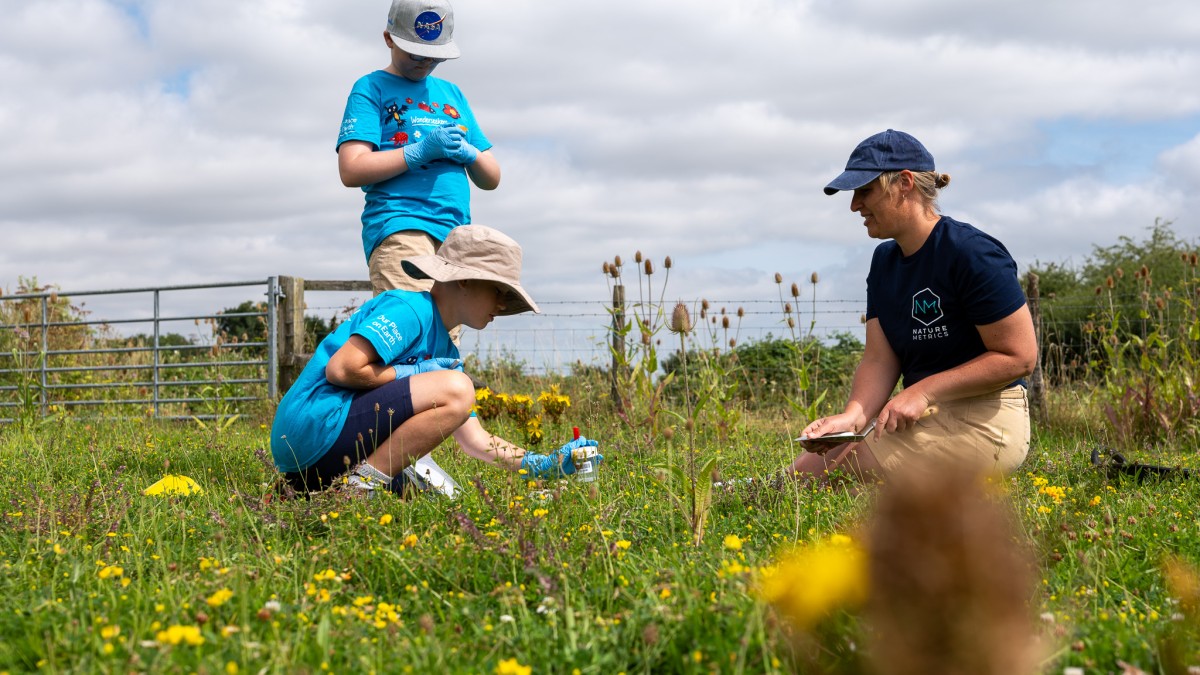
Sustainable Development Goals
The solution developed in response to Wonderseekers’ challenge addresses five key UN Sustainable Development Goals (UN SDGs). The project promotes nature connection, which has a well-documented positive impact on physical and mental health, contributing to Good Health and Wellbeing (SDG3). By engaging children and teachers from nature-deprived schools in enjoyable, accessible outdoor activities linked to pedagogical learning, the initiative supports Quality Education (SDG4) and helps reduce disparities in children's access to nature experiences, aligning with Reduced Inequalities (SDG10). The project also fosters a sense of community among participating families and encourages children to share their experiences beyond the group, thereby amplifying the impact of nature connection and contributing to more Sustainable Cities and Communities (SDG11). Finally, activities such as soil testing and bean-growing help instil care and responsibility for the natural environment, supporting Life on Land (SDG15).
Contributors
- Dr Matteo Giusti, Future Fellow in Sustainability Science, Institute for Sustainability, University of Surrey
- Nathalie Hinds, Director of Operations, Innovation and Partnerships, Institute for Sustainability, University of Surrey
- Catherine Cole, Innovation Lead, Sustainability Innovation Hub, Institute for Sustainability, University of Surrey
- Haeyoung Eun, Innovation Lead, Sustainability Innovation Hub, Institute for Sustainability, University of Surrey
- Emily Mace, Director of Science Engagement, Wonderseekers
- Charlotte Mercer, Director of External Relations and Communications, Wonderseekers
- Jo Hennessy, Director of Experiences, Wonderseekers
- Kate Wasche, Director of Fundraising, Wonderseekers
- Winchester Science Centre
The Institute for Sustainability facilitates collaborations between scientific experts and organisations. The Institute’s Sustainability Innovation Hub provides expert voices from the Fellows to nurture ideas, encourages collaboration, and supports organisations in the adoption of sustainable practices, products, or services.
Read the latest on the University of Surrey’s UN SDG report here.

Related sustainable development goals

